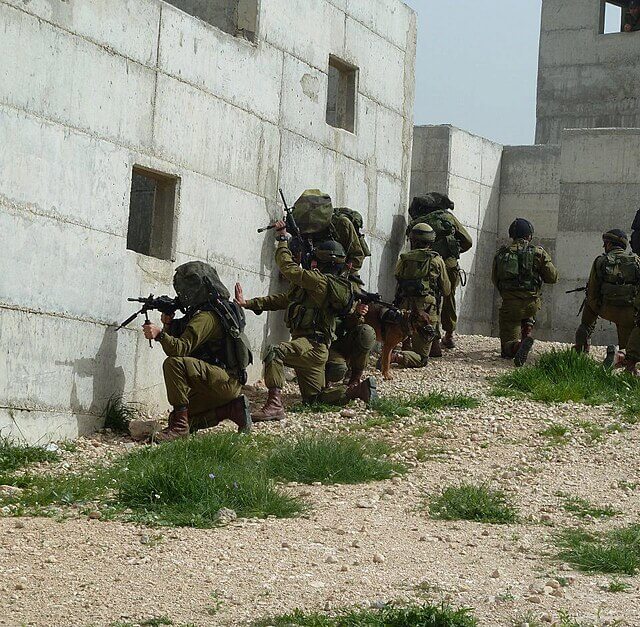
What Does the Torah Say About Aiding Our Enemies?
Dear Jew in the City,
With all the international attention on Israel’s war with Hamas, I’ve been hearing a lot of debate—both within the Jewish world and beyond—about whether Israel is obligated to provide humanitarian aid to Gaza. Some argue that as Jews, we’re commanded to help all people, even our enemies. Others say that doing so while our own soldiers and civilians are in danger seems reckless or even immoral. What does the Torah actually say about feeding or aiding our enemies in a time of war? Are we obligated to show compassion in this way, or are there boundaries when it comes to self-defense and justice?
Sincerely,
Jake
Dear Jake,
Wow. Why don’t you ask me a hard one next time?
Did you ever hear the saying, “two Jews, three opinions”? I think this is going to be an example of that. There are a lot of shades of gray and not everyone is going to agree where to draw the line. But I think we can get some context from two Biblical incidents.
In Divrei HaYamim (II Chronicles 28), there was a battle between the kingdom of Judah and the northern kingdom of Israel (the Ten Tribes). The northern kingdom prevailed and took 200,000 women and children as captives. The prophet Oded met the northern army when they were returning to Samaria. He told them that God did not approve of the Ten Tribes taking the women and children prisoner. He advised them to send the captives home before God directs His wrath at them. The leaders of the northern army didn’t just let the prisoners go, they dressed them, gave them food for the journey and escorted them as far as Jericho.
But let’s look at another incident: In I Kings 20, Ben-Hadad, king of Aram, attacks Samaria, capital of the Ten Tribes. Ben-Hadad said that he would utterly destroy the city. Israel defeated Aram, but a few months later Ben-Hadad attacked again. His army was again defeated and Ben-Hadad hid. His servants went to King Ahab of Israel to ask for Ben-Hadad’s life and Ahab referred to Ben-Hadad as his brother. The servants took the opportunity to build on this slip of the tongue. They brought Ben-Hadad to Ahab and they became friends.
But there’s more to this story! God sent a prophet to chastise Ahab. After all, God had let Ben-Hadad fall into Ahab’s hands and Ahab let him get away. There would be consequences to Ahab’s poor decision.
We see that non-combatants are by definition not part of the conflict – if anything, they should be provided with basic needs – but that courtesy doesn’t extend to actual enemies. If the Nazis at the Nuremberg Trials had apologized, they would not have been (and certainly should not have been!) forgiven. Similarly, as much as we want peace, we should not “make friends” with Hamas, who have proven themselves to be an existential threat.
Jews are called rachmanim b’nei rachmanim – compassionate people descended from compassionate people. This extends to war as well. For example, the Torah commands us, when attacking a city, to leave an escape route open so that the enemy can flee. In modern times, the IDF is doing this when they announce their targets in advance so that enemy civilians can evacuate. (Seriously, other than Israel, who would ever think of doing such a thing?)
But there have to be limits to one’s compassion or else it becomes suicide. One can’t give aid and comfort to the enemy, or else he’ll use it to destroy you. And this becomes extra complicated when discussing the war in Gaza. We’re not at war with the Palestinians per se, we’re at war with Hamas. But Hamas isn’t an army, they’re terrorists. They don’t wear uniforms, they attack civilians, they embed themselves in schools and hospitals, and in other ways making it difficult to determine where “Hamas” ends and “innocent civilians” begin.
Further complicating things, Hamas indoctrinates civilians. There have been many reports of “average Palestinian families” being complicit in the torture and murder of the October 7 captives. So, who’s an enemy and who’s a bystander? Likewise, there have been many reports of Hamas confiscating the food and supplies intended for their people. So, what’s helping the people and what’s helping the enemy?
Israel is the most compassionate army in the world. The Torah commands us not to be more ruthless in war than necessary, plus Jews are compassionate by nature. But one can’t be so compassionate that it opens the door for the enemy to come in. Determining what’s right to do and what’s safe to do is a complicated balancing act. So, while we may not all agree on the appropriate course of action, at least we have a road map to help us figure things out.
Sincerely,
Rabbi Jack Abramowitz, JITC Educational Correspondent
Follow Ask Rabbi Jack on YouTube
If you found this content meaningful and want to help further our mission through our Keter, Makom, and Tikun branches, please consider becoming a Change Maker today.







